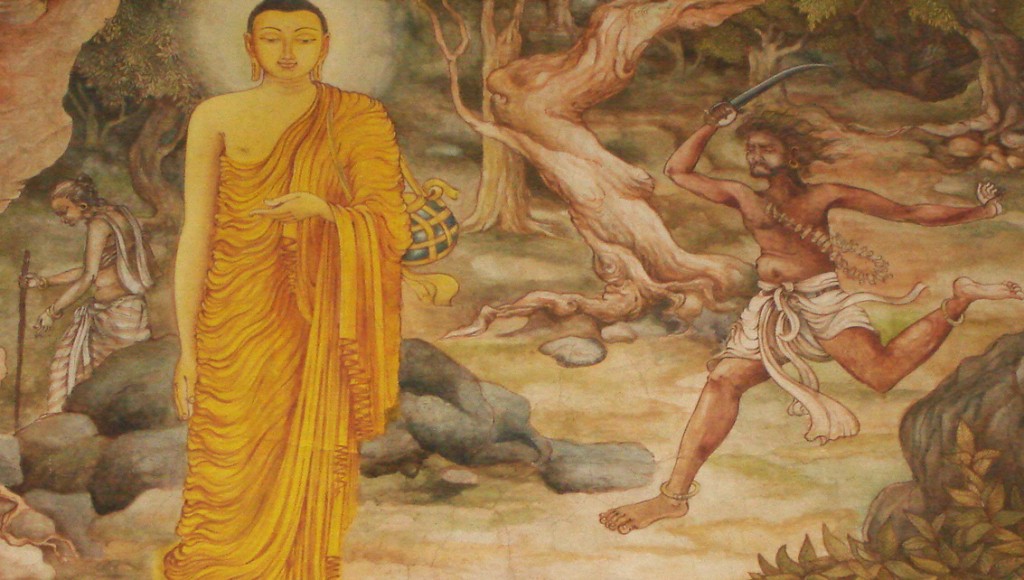
When thinking about the topic of forgiveness, I found that I had a couple of conflicting thoughts. This is one of those cases where interfaith work is internal, being that I both identify as a Hellenic Polytheist and a California Buddhist. My Buddhist self told the story of Angulimala, who was once a murderer and a thief and, upon learning stillness from the Buddha (who was to be his 1,000th murder victim), became a monk and never intentionally harmed another person again. The Buddha was willing to let go of the person Angulimala had been and accept that he could become something else. This, in my reckoning, is what forgiveness is: non-attachment to what had been and space for what will be to manifest itself. For the Buddha, this is something that came without hesitation about what a person had done in the past.
My Hellenic self came up with the stories of Herakles’ twelve labors that had been penance for having murdered his wife and children and of Apollo’s service to Admetus after slaying the Python, who was the offspring of Gaia. These stories and others point to forgiveness as something that must be earned. It is not given freely, nor is it assumed that one should forgive or be forgiven, but it can be earned through pious action and service.
These two contradictory approaches exist simultaneously in the ethics section of the brain like old friends who disagree, but still get along. My actions are generally based on what seems like the best idea at the time, which is what happens when you’re a polytheist Buddhist with no single text to guide you. My monotheistic friends, in a way, seem to have it a little easier and I admire the ones whose hearts find it easy to forgive.
Rev. Unity Shirley offers:
In Unity, we don’t believe that God is a being, but rather Beingness itself, or the very ground of Being. Other ways we see God are as energy, benevolence, or Unconditional Love. As Love, God has no need of forgiveness, for God does not condemn.
And Christian Science Juli shared this:
Forgive Again
by Viola M. Chartraw
From the Sept. 13, 1958 issue of the Christian Science Sentinel“What—forgive again?”
I thought in dismay;
“Must I keep forgiving
And forgiving each day?”
“Indeed!” said the angel,
Searching me through,
“Just forgive till the Father
Stops loving them too.”
Both of those speak more to my Buddhist leanings than my Hellenic ones, though we did talk about redemption. In fact, Muslim Dahlia and I had a short conversation on the balance between redemption and revenge. One must work toward redemption for wrongs done toward another, we agreed, but one must be careful not to be driven by a desire for revenge.
Are there “sins” (I don’t believe in “sin” as many Christians define it) that are unforgivable? Is there anything that is beyond redemption? Angulimala had killed nearly a thousand people and was forgiven. Herakles killed his own wife and children and earned redemption through his labors. Others have killed millions. Can they be forgiven or redeemed? The better part of me wants to say “yes,” though my baser instinct lashes out against that which would do harm and says “no.” It’s a tough ethical nut to crack and there was a fair bit of diversity in how our various paths handle forgiveness and redemption. Even amongst our Christians, the Evangelical, Mainstream Protestant, and (lapsed) Catholic among us expressed nuances in their approach to forgiveness and redemption, even though they agreed on the “Jesus died for our [their] sins” part.
I would be interested to hear how other Pagans handle forgiveness and redemption in their paths. Or is it something you’ve thought of at all?











